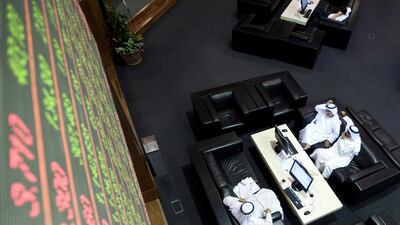January proved a negative and volatile month for global equities as concerns on emerging markets contagion, China shadow banking-linked defaults and US earnings weighed on investor sentiment.
The United States, Europe, Japan and emerging markets in general registered the worst January open for a number of years.
Policy response to emerging market travails has been forthcoming with surprise rate rises in India and Turkey, indicating a seriousness and intent to decisively tackle issues of currency depreciation, foreign direct investment (FDI) and inflation.
It is likely that further such measures will need to be enacted, but a willingness to act has been proven together with a call for a unified global response rather than the unilateral actions seen until now.
The Chinese government in effect bailed out a number investors in the Chinese shadow banking sector to the tune of US$500 million, but it is believed that about $5 billion of investments are at risk of collapse out of the total estimated $5 trillion in the shadow banking system.
It remains to be seen how much China is willing to manoeuvre on this issue, as moral hazard exists, but it should be noted that the country has $4tn in foreign exchange reserves and that lessons learnt from Bear Sterns and Lehman Brothers are important.
Against this negative backdrop, UAE markets were very strong. Abu Dhabi rose 8.9 per cent and Dubai was up 11.9 per cent.
Have UAE markets decoupled from global markets? Can such a disparity in performance be sustained? In short, the answer is yes.
UAE markets have risen almost 90 per cent over the past 12 months, but valuations on consensus price earnings ratio stands at about 12 times. This brings the UAE in line with most GCC markets but still puts it at a discount to MSCI World, Bric and Asia Pacific emerging countries.
To understand the decoupling element simply look at the main concerns, which in emerging markets, are FDI and depreciating currencies. The GCC is a net creditor and currencies are pegged to the dollar. In developed markets, earnings and valuations are seen as the main issue.
Drilling down into detail, fourth quarter earnings for UAE banks have generally been in line with expectations, and many increased dividend payouts for last year.
The banking sector continues to benefit from upturn in economic growth and recovery in real estate prices. Last year saw a strong re-rating of the banking sector and in many cases share prices increased by more than 100 per cent. Loan growth data suggests that system wide loans increased by 6.8 per cent in 2013 and guidance is for similar growth this year.
In January, smaller banks performed very strongly. Sharjah Islamic Bank was the best performing stock, gaining 38 per cent, followed by Bank of Sharjah at a 26 per cent gain and Union National at 18 per cent higher.
The listed Dubai Financial Market stock gained 2.8 per cent last month underperforming the overall index. Average daily traded value on the Dubai bourse was $496m, a 75.5 per cent month on month gain and more than 4.42 times the average value recorded in January last year. The total traded value last year increased by 227.8 per cent to Dh159.8bn. Net profit grew 8.8 times year on year in 2013 and the DFM also declared a 5 per cent cash dividend after three years of no payment.
The property and construction sectors in the UAE continued to outperform the wider market, with notable gains being made by Arabtec, Aldar, Drake & Scull, Union Properties and Deyaar Development.
Emaar was a laggard despite the launch of four new projects in Dubai. Shares of Arabtec, up 50 per cent this year, were lifted by two massive contracts – a Dh2.6bn project in Abu Dhabi and a Dh5.7bn project in Jordan.
Shares of Aldar, up 16 per cent this year, gained on the Abu Dhabi Government's decision to create freehold areas in the emirate, which will allow foreigners to receive title deeds on properties that they own.
Property and construction companies have yet to announce their 2013 fourth-quarter numbers. We expect improved year over year profitability on the back of project deliveries and strong performance by their hospitality and rental portfolios.
The UAE markets have risen sharply but justifiably. We can expect volatility and a pendulum effect will likely come into play, but it is important to note that the centre point for fair valuation of the pendulum is shifting as underlying fundamentals are undoubtedly getting stronger.
Saleem Khokhar is the head of equities at National Bank of Abu Dhabi

